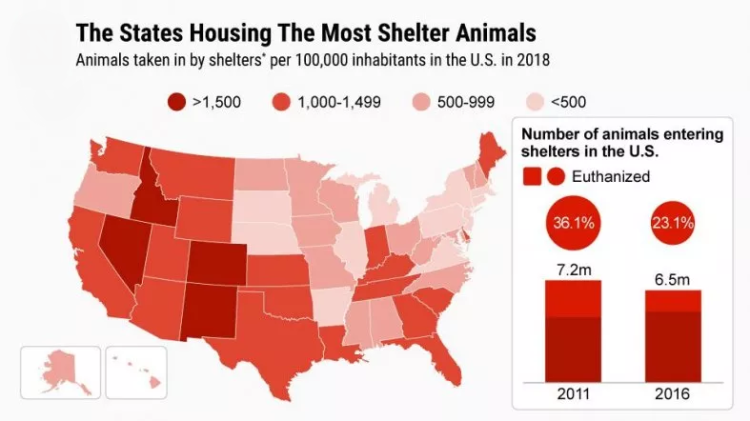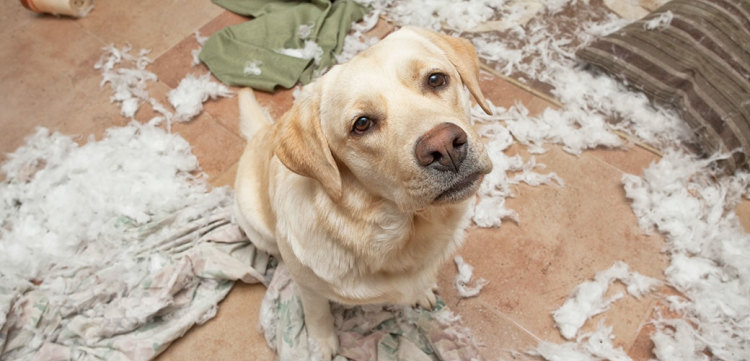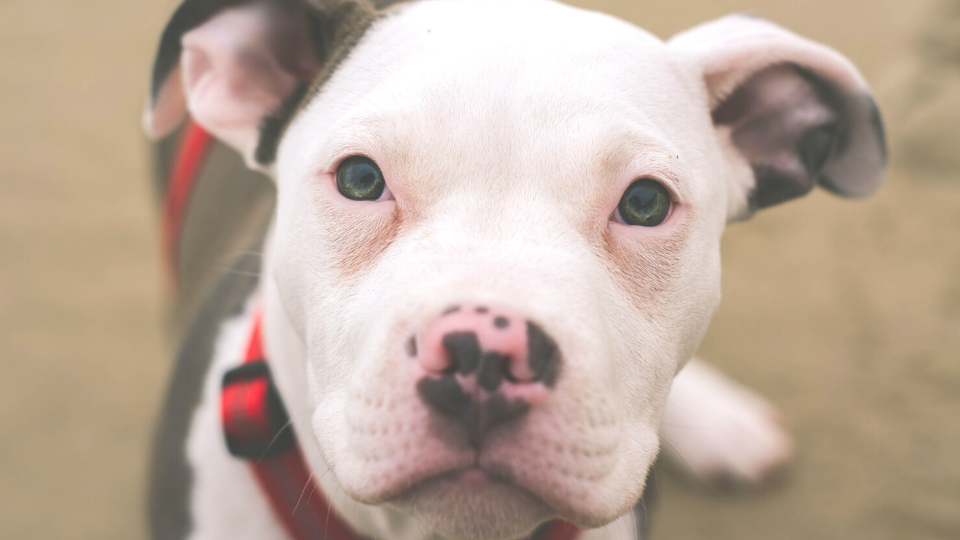Bringing home a rescue puppy is one of the most exciting moments in a pet parent’s life. It’s also a big responsibility, as it’s the beginning of a years-long relationship.
A rescue dog is one that has been placed in a new home after being abandoned by its previous owner. It could also be a homeless animal that was rescued from the street or a dog that was removed from a home after suffering from abuse or neglect.
Rescue animals typically come from animal shelters or a humane society. These groups work to rehome rescue dogs so they can avoid euthanasia. They do not come from commercial breeders or pet stores.
According to the ASPCA, approximately 6.5 million companion animals including 3.3 million dogs enter animal shelters each year.
Here's a look at where most animals were sheltered in 2018:
 (Image Source: Newsweek)
(Image Source: Newsweek)
Thankfully, about 3.2 million shelter animals are adopted each year, and the ASPCA has seen 70% increase in animals entering foster homes in recent months as families stay home.
By adopting a rescue dog, you’re helping one more animal find a loving home where they can thrive. But first, you’ll need to prepare for your home for your new furry friend.
How to Bring a Rescue Puppy Home
Adopting a puppy is quite different from adopting an adult dog. Before you go through with the adoption, you should ask yourself why you want a puppy in the first place.
There are plenty of good reasons to adopt a rescue puppy. For example, by adopting a rescue, you’d also be doing the following:
- Making space in the shelter for another rescue animal
- Supporting your local animal shelter
- Fighting against cruel and unethical breeding and selling practices
- Giving a second chance to an animal in need
- Bringing unconditional love into your home
- Providing yourself and your family with companionship
- Starting a lifelong relationship that can bring fulfillment to your life
Beyond the immeasurable societal benefits of adopting a dog, canine companions are also great for your mental and physical health. Visits to the dog park can help you and your dog stay in shape (just avoid these rookie mistakes), and pet ownership has been proven to reduce cardiovascular risk. Dogs can even help relieve stress and anxiety in the workplace.
But not everyone is ready for a new puppy, even if they know they want one. Most puppies are untrained, and they need a lot of attention before they know the ins and outs of sharing a home with a human.
Puppies can be headstrong, energetic, and even destructive. Adopting a puppy should never be an impulsive decision, and you should recognize that you’ll need to put in the effort to train your puppy from the very beginning.
Here are the important things to consider when getting a rescue puppy:
Consider How Much Time You Can Devote
You’ll need to devote a great deal of time to your puppy before they are ready to be left on their own. In the beginning, you may always need someone present in the home.
Most experts agree that you need to teach puppies to get used to alone time and to start with increments. You’ll also need to spend time teaching your puppy to avoid unwanted behavior, such as nipping, jumping on furniture, and going to the bathroom in the house.
Consider The Costs
Adopting a puppy is affordable for more pet parents, but it can still get expensive. You should make a list of all the costs you expect to pay when you adopt your puppy, as well as the costs you’ll incur over the dog’s lifetime — costs like veterinary care.
Your initial costs may include the following:
- Adoption fees
- Vaccination fees
- Checkup fees
- Dog tags
- Pet registration fees (depending on your town or city)
- Food and medication
- A travel carrier
- A leash and collar (and/or harness)
- Food and water bowls
- A dog bed
- A crate (to sleep in)
- Toys
- Pee pads
You should also consider purchasing pet insurance for your new puppy so that you know you'll be able to afford their care. It’s best to enroll your dog in a pet insurance plan while they are still young. This way, you’ll be covered if any diseases or ailments present themselves. There are no pet insurance plans that cover pre-existing conditions (though some curable condition may be covered with certain providers after a waiting period).
*NOTE: Please see this in-depth new puppy checklist (it's worth bookmarking, downloading, printing - what ever you have to do to ensure you hit the items on the list).
Consider Your Home
Before adopting a rescue pup, ask yourself if your home is the best environment for a dog. Most dogs adapt well to any living situation, but some dogs are better suited to specific home environments over others.
 (Image Source: ASPCA)
(Image Source: ASPCA)
For example, if you live in a large city and you have a small apartment, a large dog might feel confined in the space. If you live in the country, you need to be sure a small dog will be safe from predators on your property.
Puppy-proofing your home will also be an important step, but we’ll explore more on that below.
Consider Your Neighborhood
Ensure your neighborhood is dog friendly and will be able to accommodate your new pet. Some apartment complexes may have restrictions on what types of pets are allowed. Some neighborhoods have strict rules about how you handle pet waste, and there may be guidelines about where you can walk your new dog and where you can’t.
Where To Get A Rescue Puppy
Animal welfare advocates and humane societies all recommend you skip the pet store and go straight to animal shelters to adopt a new puppy. This is the best way to ensure you’re not supporting puppy mills or other unethical operations. Keep in mind that even if you adopt from a reputable breeder, you aren’t “rescuing” a puppy.
The easiest way to find a rescue puppy is to look at shelters in your area. You can also use Petfinder to find pets that are available for adoption near you.
How to Prepare Your Home for a Rescue Puppy
If you’ve never had a puppy, you may not realize how many dangers are lurking in your home. Your puppy will be inquisitive and much more active than an older dog, so you need to take every precaution to keep them safe from harmful objects and substances.
Please consider insuring your rescue pet so they can get the care they need if they do have an accident or become ill.
Here’s what you should do in the meantime.
Cover Your Trashcans
Puppies are curious, and nothing will make them more curious than an interesting smell. On any given day, your trashcan may have an abundance of smells that your puppy might want to get into.
You should get a cover for your trash can if you don’t already have one. If you can, keep your trashcan separate from your puppy or tuck it away in a cabinet or closet. This won’t just prevent your puppy from making a stinky mess. It will also ensure they don’t get into anything dangerous in the trash as well.
Cover Wall Sockets, Remove Cords and Electronics
Electrical cords, cell phone chargers, remote controls, and other electronic devices are all potential hazards to puppies. Puppies like to chew, and when they chew on electronics, they risk receiving an electric shock. Even the batteries in your TV remote can be dangerous, as they contain corrosive acid.
Wherever you keep your puppy, cover wall sockets to prevent them from accessing them. Instruct your family to keep all their electronics out of the puppy area. Eventually, your puppy may grow out of the chewing phase. But for now, it’s better not to risk it.
Secure Medications and Chemicals
Puppies can also chew on prescription drug containers and the containers of cleaning chemicals, potentially exposing them to poisonous substances. Always lock these materials away and keep them separate from your puppy.
If you need to clean up after your puppy, remember to put the cleaning supplies away when you’re finished. You can also use natural cleaners that are less hazardous to animals to be safe.
Remove Any Poisonous Houseplants
Many common houseplants, including the jade plants, lilies, and spider plants, are poisonous to animals. These plants typically cause vomiting, diarrhea, oral irritation, or other physical symptoms, but some of them can even be deadly.
The APSCA has an exhaustive list of poisonous houseplants to keep away from your puppy.
Give Your Puppy Their Own Space
Eventually, you’ll be able to let your dog run free throughout most of your home. But when you first bring your puppy home, they should have their own space. This area should be comfortable and well-stocked with food and water. Your puppy should be able to roam their area during the day, and you should bring them outside at regular intervals for potty training and playtime.
This should be a stress-free area. Ideally, it will be set apart from the highly trafficked areas of your home. Dedicating an entire room to your puppy is usually a good strategy, if possible. Once they start to see the area as theirs, they’ll be more comfortable making the transition from the shelter to your house.
How Rescue Puppies and Puppies from Breeders Differ
Animal shelters are typically nonprofit organizations, but breeders breed and sell puppies — usually purebreds or specific mixes — as a business. They make a profit from doing so. While some breeders operate ethical businesses, even accomplished breeders have been arrested due to animal neglect and abuse.
According to the American Kennel Club, a reputable and ethical breeder should have the following characteristics:
- They let you visit their home or their place of business
- They let you see the puppy’s parents
- They let you see the conditions their dogs live in
- They appear to genuinely care about the animals
- They follow local laws and regulations about registering and caring for animals
- They have you fill out paperwork, such as a contract, and give you copies
- They readily answer all your questions
That said, rescuing a puppy is often the more impactful choice (before falling back to a breeder).
Rescue puppies are rescued from dangerous circumstances and placed in a home. They may or may not be purebred. They may require more attention than other puppies because they aren’t used to being in loving environment yet.
The American Pet Product Association reported in 2016 that more dogs are purchased from breeders than adopted/rescued from shelters. Thankfully, 2020 has seen a surge in pet adoptions, helping many shelters adopt out all their rescue pets for the first time.
Training Your Rescue Puppy
House training your rescue puppy will take patience. They may be more nervous than other dogs, especially if they were rescued from an abusive situation.
Ask the shelter about your puppy’s history. Don’t make assumptions about your puppy’s training or their past. It’s best to assume your puppy has no training at all.
First, give your puppy some time to adjust. Give them their own space and ease them into training so that it feels natural, not forced. This doesn’t mean you shouldn’t start training immediately, it just means you shouldn’t scold your puppy or force them into any kind of training they aren’t comfortable with.
Focus on improving your dog’s behavior through positive reinforcement. Reward your puppy for good behavior and ignore their bad behavior. If they successfully go to the bathroom outside, reward them with praise and a treat. Do the same when crate training them at bedtime or when teaching them to sit, heel, and follow other basic commands.
Always have someone in your household watch your puppy to help them avoid separation anxiety, at least in the beginning. Keep your puppy on a schedule so they know what to expect each day.
You’ll need to socialize your puppy, so they get used to being around other animals and human beings. Shelter dogs may have a harder time with this than other dogs, so take this slowly. Try introducing new people and animals one at a time.
Of course, the recent coronavirus introduces a few obstacles, but there are still ways to keep your pet happy and healthy amid COVID-19.
If you’re still having trouble training your pup, consider bringing them to a professional dog trainer for help.
NOTE: The New Puppy Checklist 2020 is a "must-read" - covering everything from puppy-proofing to medical schedules and training.
Your Rescue Puppy Will Love You Unconditionally
Adopting a shelter dog is a challenging but rewarding experience. Too many pets are abandoned and end up desperate for love in a shelter.
Rescue pets are not broken. They often just need love, and care, and attention.
Consider adopting from a rescue, rather than purchasing from a breeder. There's already millions of good pups waiting for you to give them a chance.
